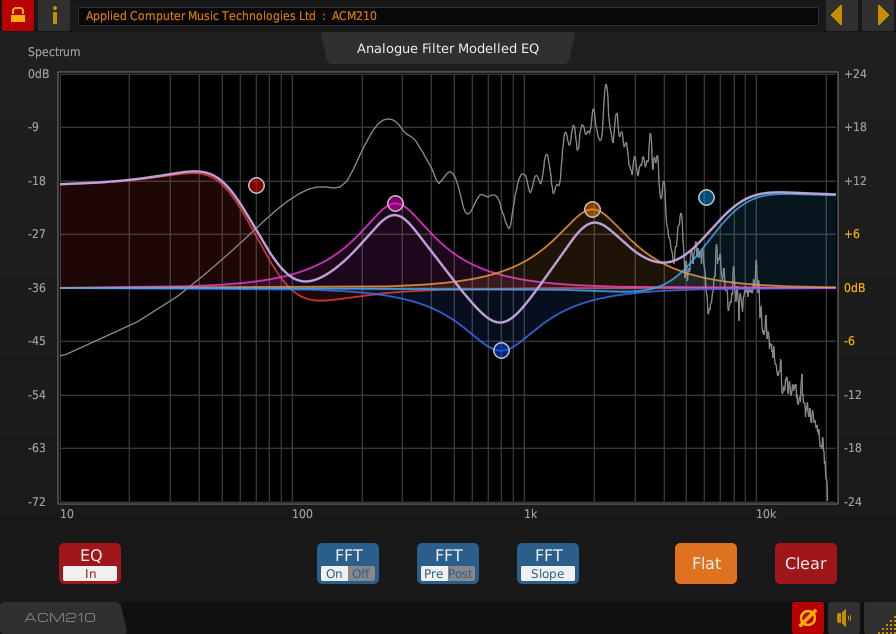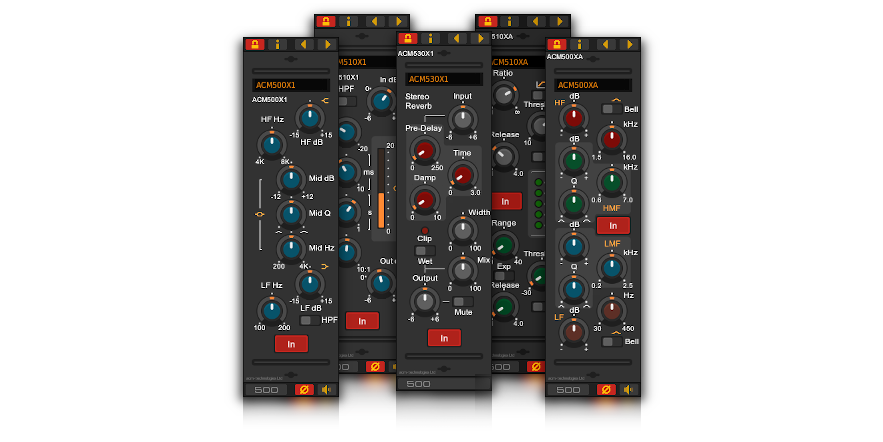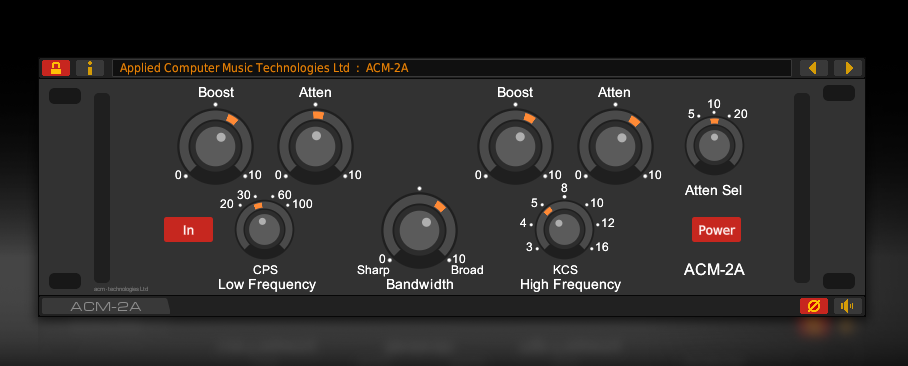Linux has the hosts – Bitwig, Ardour, Reaper, Renoise, Tracktion. And now, it’s got the high-quality analog models, too, including some of the first to support the new, open CLAP format.
ACM Series plug-ins cover all the analog modeling ground we’ve come to expect on computers – the sort of stuff studios like to show off as rare gear. Those options have been more scarce on Linux. ACMT has done an exceptional job both of emulating a full range of tools, across EQ, channel strip, dynamics processing, and plate reverb, but also of giving you a complete feature set.
And I really, really like what they’ve done as far as balanced interface design. A certain degree of skeuomorphism is important, in that you expect controls to be laid out and labeled in certain ways, especially in analog emulation. Even color provides a mental cue, and those layouts worked for a reason – and provide spatial memory of where things are. But instead of overdoing it, ACMT focused on cleaning up the UI for easy readability – like these are actually displayed on a screen. I think they’ll look especially at home in the hosts I mentioned.



Anyone listening? More like this, please. This certainly has given me a reason to refresh my Ubuntu Studio install – it just conveniently hit a great LTS (long-term support) build in April. These tools really sound terrific.
In some alternate universe where I’m running a music lab, you could easily imagine outfitting a Linux lab with something like Harrison MixBus (with some great console/mixer emulations of its own) or Bitwig Studio and then this suite of tools and teaching engineering. (In this alternate universe, I also have a goatee and am frankly way better at mixing. Let me work on that.)
The full collection:
Equalizers: 10-band graphic EQ, Pultec-style EQs, 3-band EQ, console-style control strips, all analog modeled.
Dynamics: Analog-modeled limiter, compressor, compressor / expander-gate, Fairchild 670 modeled limiter.
Reverb: Algorithmic stereo plate reverb with subsample-accurate predelay.
And you can grab all of those in convenient bundles with quite reasonable pricing. What’s new – now many of those are also available in CLAP versions.
Yeah, I’ve got some solid plug-ins that do this on Windows and Mac, and still I’m glad to be able to build a Linux project machine with these.
Mike Start from ACMT has a 30-year background in pro audio engineering, beginning with work in all-analog design (“before affordable DSP was a thing”). That comes across in the work here; it feels and sounds like a well-informed labor of love.
He has some reflections on CLAP, too, which may interest developers. LV2 remains a strong open source choice for some developers I’ve talked to, but I’m not surprised that someone coming from VST development would find CLAP appealing. Here’s what he shares about CLAP:

I confess to being initially a bit skeptical of the hype around the CLAP
format – as a plug-in developer, supporting a new format is a
significant ongoing investment in development time, so it has to be
worthwhile, but it’s clear from discussions with users that this is
something which is important to them.
The CLAP SDK has made porting plug-ins to CLAP so far a relatively pain-free experience. It’s clear that this is an evolving format, but I think
the foundations are well thought out and solid. Will it displace the
mighty VST? I can’t tell, but I think its important to provide users
with choice and it will be exiting to see how the journey unfolds.
Experienced Linux users can run whatever distro they want, but the usual applies here – Ubuntu 16.04 LTS is tested, or 20.04 or later for the CLAP versions. I think Ubuntu Studio 22.04 LTS is a perfect choice for an average user.
And yeah, then a ton of interfaces work out of the box – I use a MOTU M4 and its excellent class-compliant implementation.
This has other implications, too, for small form-factor Intel-based machines. Think of being able to do an installation, but still have your favorite Pultec controls, for instance – or being able to build a compact live machine that has the plate reverb. (These are fairly CPU-light implementations, too.)
All versions have a free demo – with audio dropouts, but enough for a quick test.
Check out the full versions here. I’ll try to do a review of this stuff in the coming weeks.
https://www.acmt.co.uk/products/